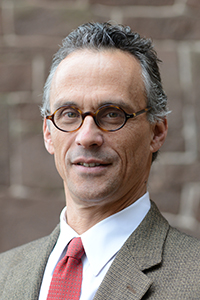President Roth Comments in The Atlantic on College Admissions Process

The Atlantic education writer Alia Wong turned to President Michael S. Roth for his perspective in a three-part series on “Where the College Admissions Process Went Wrong.” One critical problem is that the intense focus on the college application process means that rather than preparing themselves for college or for life, students are preparing simply for the “moment of admission.”
“What we want is to have students who want to come and work hard because they can leverage their experience at the university and do something after they leave,” said Roth. “One of my predecessors used to say to students, ‘If these turn out to be the best four years of your life, we’ve failed you.’”
In recent years, different groups have attempted to reform the process to change this focus, and the values it promotes in students.
“I think that that’s the missing part now—this consumer mentality [of], ‘Oh, I got in and now I get to enjoy the exclusive club,’ rather than ‘I got in, and now I get to use these resources to do something after the university,’” said Roth.
One new campaign, called Turning the Tide, tries to emphasize the character-building potential of the application process by calling on selective colleges to encourage applicants to engage in “meaningful, sustained community service,” contribute to their families, and focus on the quality (versus the quantity) of extracurricular activities. Yet Roth remains skeptical of this approach.
“I do worry about trying to create a new system that will measure qualities that will supposedly make people better people. Because insofar as it becomes a new system, it will be gamed by people who already pad their resumes with all kinds of activities that supposedly show empathy, but what they really show is a desire to get into schools where empathy is a criterion for admission,” he said.
He sees the fundamental problem as being the American obsession with exclusivity.
“Part of what’s attractive [about] going to a great Ivy League institution is not so much the anticipation of a wonderful undergraduate education,” he said. “But the fact that it’s just really hard to get in—that’s just a trait of our culture.” Once “you set up another grid, people will create another profile to match the grid as long as the competition for seats remains intense.”
The third article in Wong’s series looks at the effect of the U.S. News & World Report’s rankings on colleges and universities.
They’re “highly pernicious,” said Roth. “I think they’ve had a really deleterious effect on higher education as [colleges and universities] try to meet requirements that may not be in the best educational interest of their students.”
He added that college rankings contribute to the admissions frenzy, giving the impression that the most desirable schools—irrespective of the applicant and his or her specific interests and needs—are the ones at the top of the list, the ones that are harder to get into.”
“They accentuate the race toward the wealthiest schools,” said Roth.
Read more in parts two and three of the series.

